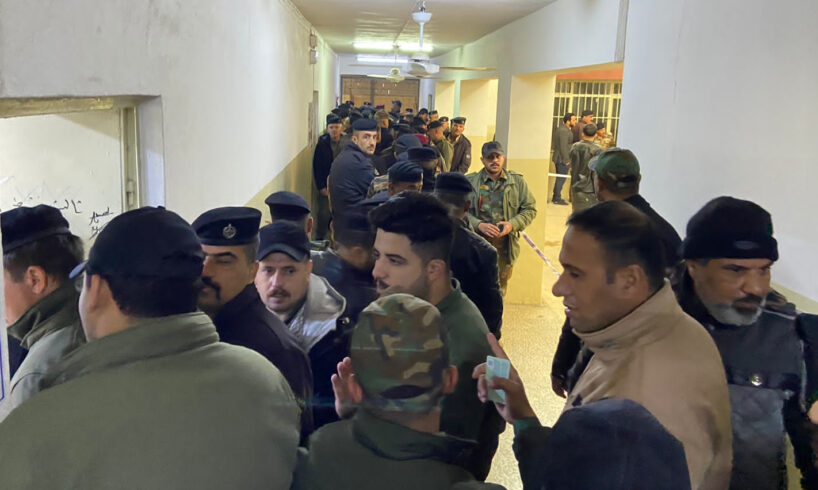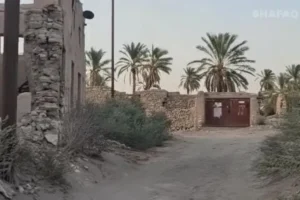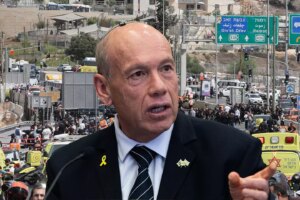
Shafaq News – Baghdad
With Iraq’s
parliamentary elections only days away, preparations are in full swing for the
special vote on Sunday, November 9, 2025 — a crucial early test involving more
than 1.3 million Iraqis from the security, defense, and service sectors, as
well as internally displaced persons (IDPs). Held two days before the general
vote on November 11, the special round often sets the tone for the national
ballot.
Special Voting
Schedule and Procedures
Polling will run from
7:00 a.m. to 6:00 p.m. under the full supervision of the Independent High
Electoral Commission (IHEC) and accredited observers.
Electoral silence
began at 7:00 a.m. on Saturday, November 8, halting all campaigning and
political advertising for 24 hours.
IHEC said all ballots
will be sealed and stored until they are integrated into the general count,
with technical and security measures in place to preserve the integrity of the
process.
Across Iraq, 4,501
polling stations have been designated for special voting.
Eligible Voters
1,313,980 Iraqis are
eligible to participate. The special electorate includes members of the
security and military institutions, service forces, and IDPs registered through
special arrangements.
Only those who have
received and activated their biometric voter cards will be permitted to cast
their ballots.
Breakdown By
Institution:
-Ministry of
Interior: 597,453
-Kurdistan Region
Ministry of Interior: 124,312
-Ministry of Defense:
298,054
-Peshmerga Ministry:
145,907
-Popular Mobilization
Forces (PMF): 128,127
-Counter-Terrorism
Service: 18,410
-Border Ports
Authority: 1,596
Internally Displaced
Persons (IDPs): 26,538 (across 22 polling stations inside and outside camps)
Kurdistan Region
Overview
The Kurdistan Region
will host 204 special voting centers with 958 polling stations, alongside 10
press centers for media coverage.
-Erbil: 79 centers,
385 stations, about 111,839 registered voters
-Al-Sulaymaniyah and
Halabja: 82 centers, 378 stations, 108,344 voters
-Duhok: 43 centers,
195 stations, 56,430 voters
Security Measures
Iraq entered on
Thursday, Alert Level C, the highest state of military readiness, to safeguard
the elections. The plan covers all provinces except the Kurdistan Region and
includes full troop deployment, reinforced checkpoints, and 24-hour patrols.
The Ministry of
Interior said coordination among security branches aims to secure polling
centers and prevent disruptions during voting.
Why It Matters
Though smaller in
scale, the special vote carries significant political and logistical weight. It
serves as:
-A system test:
evaluating biometric verification and electronic transmission systems ahead of
the general vote.
-A credibility
benchmark: any delay or irregularity could undermine public trust in the
process.
-A political
indicator: voting patterns among security personnel often signal early
institutional and political trends.
Observers from the
Arab League and Iraqi civil society organizations will monitor polling centers,
particularly in mixed and disputed areas between Baghdad and Erbil.
Lessons from the Past
In the 2021
elections, 821,800 Iraqis took part in the special vote, recording a 69 percent
turnout. Babil saw the highest participation at 80 percent, while Kirkuk
registered the lowest at 59 percent.
Technical glitches,
including malfunctioning biometric devices and delayed ballot transfers, drew
public criticism at the time.
For 2025, IHEC says
it has upgraded verification systems, improved network coverage in remote
bases, and enhanced coordination with the Defense, Interior, and Peshmerga
ministries to ensure smoother and more reliable operations.
All special voting
results will remain sealed until the nationwide ballot concludes and will be
incorporated into the final count.
Read more: Iraq’s 2025 Parliamentary Elections — What You Need to Know
Written and edited by
Shafaq News staff.





